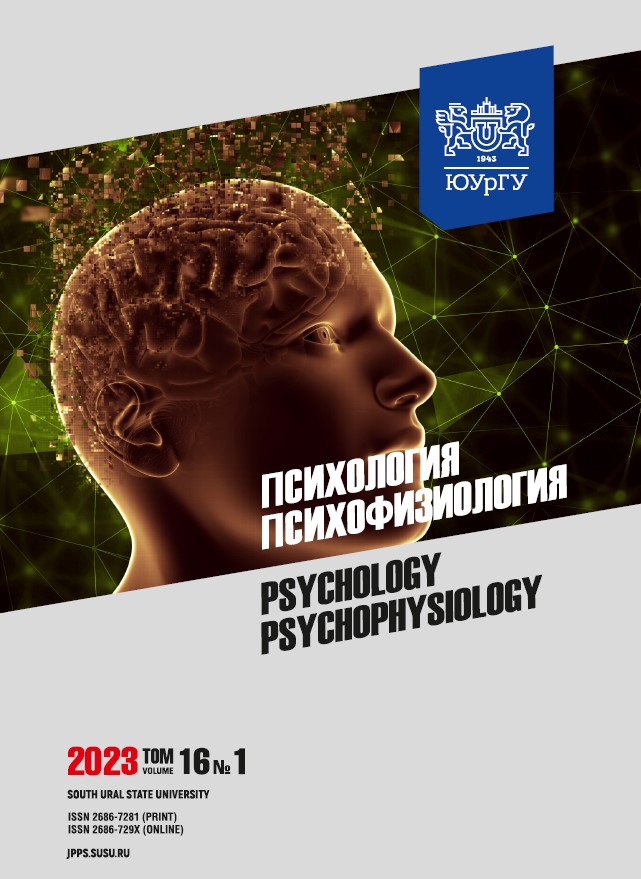Interaction of a melatonin analogue with memory subsystems in high anxiety
Abstract
Introduction. The prevalence of neuroses with various types of anxiety, as well as concomitant memory and learning disorders, makes it necessary to search for new means of their treatment. Aim. The aim of the study was to determine the effectiveness of melaxen in the treatment of various types of anxiety. Materials and methods. This single-blind study was performed in accordance with GCP principles. The State-Trait Anxiety Inventory (Spielberger–Khanin) was used to divide 175 subjects into groups depending on the level of their personal or situational anxiety. Psychometric tests were used for the assessment of procedural, semantic, and episodic memory, including the choice of movement direction in a virtual maze, the memorization of 30 monosyllabic words after numbers, and the memorization of 30 events in their chronological order after numbers. The results obtained in the subvocal rehearsal test were used for the analysis of maintenance rehearsal, while those obtained in the test for recognition of verbal information based on the structural and semantic codes were used for elaborative rehearsal. Melaxen at a dose of 3 mg was prescribed for six days. Statistical processing of the data obtained was performed with the Student’s t-test and Mann–Whitney U-test. Results. In the control group, a positive effect of high situational anxiety on procedural learning was recorded, with simultaneous impairments of verbal (semantic) and episodic learning. The negative impact of high personal anxiety was insignificant. After a short course of melaxen, procedural skills significantly improved in a group of subjects with moderate and high situational anxiety. Positive changes were observed in verbal learning, including semantic and episodic memory, in subjects with moderate and situational anxiety. The positive effect of melaxen was not observed in subjects with high personal anxiety. In persons with moderate and high situational anxiety receiving melaxen, the recognition and reproduction of words improved with subvocal rehearsal and the use of a semantic code. Conclusion. Melaxen improves learning skills associated with procedural, semantic, and episodic memory exclusively in subjects with moderate and high situational anxiety.
Downloads
References
2. Belozertsev Yu.A., Belozertsev F.Yu., Yuntsev S.V. et al. Influence of melaxen in combination with a nap session on learning processes in insomnia. ENI Zabaikalskii meditsinskii vestnik = ENI Trans-Baikal Medical Bulletin. 2013;2:98–103. (in Russ.).
3. Levin Ya.I., Kovrov G.V. Some modern approaches to the treatment of insomnia. Lechashchii vrach = Attending physician. 2003;4:18–21.
4. Arushanyan E.B. Unikalnyi melatonin [Unique melatonin]. Stavropol. 2006:119. (in Russ.).
5. Buddley A., Eysenck M., Andersson M. Pamyat [Memory]. Moscow: Piter. 2011:554.
(in Russ.).
6. Belozertsev Yu.A., Belozertsev F.Yu., Shirshov Yu.A., Yuntsev S.V. Korrektsiya kognitivnykh rasstroistv pri insomnii [Correction of cognitive disorders in insomnia]. Chita: ChGMA. 2016:121. (in Russ.).
7. Solso R. Kognitivnaya psikhologiya [Cognitive psychology]. St. Petersburg: Peter. 2006:587. (in Russ.).
8. Marshall L., Born J. The contribution of sleep to hippocampus-dependent memory consolidation. Trends in Cognitive Sciences. 2007;11(10):442–450
9. Niles L.P., Armstrong K.J., Rincon Castro L.M. et al. Neural stem cells express melatonin receptors and neurotrophic factors: colocalization of the MT1 receptor with neural and glial markers. BMC Neuroscience. 2004;10:1186–1195.
10. Jean-Louis G., von Gizycki H., Zizi F. Melatonin effects in sleep. Mood and cognition in elderly with mild cognitive impairment. Journal of Pineal Research. 1998;25:177–183.
11. Zhdanova J.V., Friedman L. Melatonin for treatment of sleep and mood disorders. Natural medications for psychiatric disorders: considering the alternatives. Ed. Mischolon D., Rosenbaum J. Philadelphia: Williams and Wilkins. 2002:147–174.
12. Naranjo-Rodriguez E.V., Рrieto-Gomez B., Reyes C. Melatonin modifiees the spontantos multiunit activity recorded in several brain nuclei of freely behaving rats. Brain Research Bulletin. 1991;27(5):595–600.
13. Baudas G., Nedzvetsky V.S., Nerush P.A. et al. A novel role for melatonin: regulation of the expression of cell adhesion molecules in the hippocampus and cortex. Neuroscience Letters. 2002;326(2):109–112.
References on translit
-Copyright (c) 2023 Psychology. Psychophysiology

This work is licensed under a Creative Commons Attribution-NonCommercial-NoDerivatives 4.0 International License.



